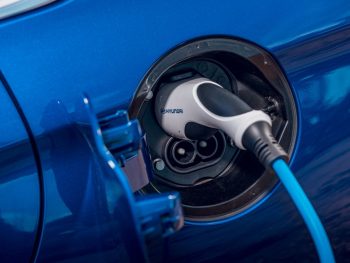Thatcham Research to explore EV repair and insurance pain points
Thatcham Research is to spearhead a project exploring collision repair/salvage processes and their impact on insurance claims and costs.

Thatcham says the difference between EV and ICE is most clearly underlined in the insurance claim chain
While EVs are central to the Government’s 2050 net zero target, their repair and insurance process differs greatly from ICE vehicles – and Thatcham warns that very little is known about the risks presented by EVs to that process and in turn wider EV adoption.
Adrian Watson, head of engineering, Thatcham Research, explained: “In many circumstances, EV accident repair is no different from ICE vehicles. But under the hood lie everyday essentials, such as safe, cost-effective, timely post-accident repair, and the surrounding claims process so critical to putting any new vehicle on the road. And nowhere is the difference between EV and ICE more clearly underlined than in the insurance claim chain.”
The five-month research project, funded by Innovate UK (IUK) and supported by insurer LV= along with vehicle salvage and recycling specialist Synetiq, will look at the best way to repair EVs and their batteries, drawing on real-world claims data.
EV batteries will be a particular focus – as they are expensive, vulnerable items, automotive design engineers work to rigorously protect them within crash structures, meaning they are rarely affected by low-speed impacts. However, challenges arise when the battery is involved, either directly or indirectly as a result of a collision, or indirectly when the high-voltage system becomes associated with the repair.
Watson continued: “It’s vital that the industry comes together to ensure customer expectations of owning, insuring and repairing an EV can be met – and that the experience can be better than they’re used to with an ICE.”
In the first phase of what is likely to be a significant cross-industry effort, the project will focus on identifying where the claims workflow is different for EVs, revealing potential pain points. Thatcham Research will also quantify the resulting challenges by projecting how the uptake of EVs will affect the transition to a fully electric car parc, to inform where more detailed work may be required in the future.
The work will bring benefits across the accident repair sector but also to EV drivers too.
Chris Payne, head of networks and engineering at LV=, explained: “As a motor insurer, we’re focusing on two trends at the moment: developing green methods of repair and supporting the wider adoption of electric cars. That’s why this project is so exciting and crucial. It is about finding together as an industry what is the best way to repair EVs and their batteries, rather than writing them off. This will not only have a positive impact on claims costs, but will also feed a healthy second-hand EV market.”
Meanwhile, Synetiq will explore the challenges that come with battery recycling and how to maximise the financial and environmental return on vehicles.
New research from the Social Market Foundation has revealed that the UK is in real danger of running short of the mechanics needed to keep EVs on the roads in the run-up to the 2030 ICE ban. The cross-party thinktank warns that the number of skilled technicians that can service such cars is not keeping pace with the growth. And by 2030 – when the Government’s planned ban on sales of new purely petrol or diesel cars kicks in – the country could face a shortfall of 25,000 qualified technicians.












